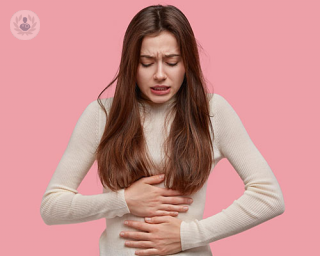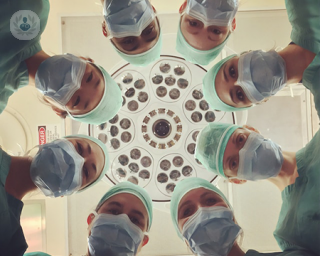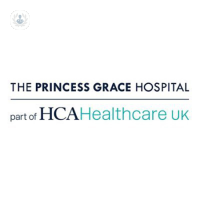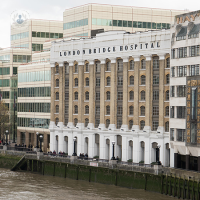Hysterectomy
Miss Neelam Potdar - Obstetrics & gynaecology
Created on: 09-07-2016
Updated on: 12-05-2023
Edited by: Kate Forristal
What is a hysterectomy?
A hysterectomy is a surgery that involves removal of the uterus (womb), meaning you are no longer able to get pregnant post-surgery. There are different types of hysterectomy, and the type that you would be recommended would depend on why you require a hysterectomy.
The procedure is a big operation using general anaesthetic with extensive recovery periods, and is recommended after other less invasive procedures have been tried.
Obstetricians and gynaecologists perform hysterectomies.

Why would you have a hysterectomy?
There are a number of different reasons why a woman would have a hysterectomy which include:
- Endometriosis – a condition where uterine lining tissue develops outside of the uterus, causing pain, heavy periods and infertility.
- Cancer of the cervix, uterus or ovaries
- Non-cancerous tumours (fibroids)
- Chronic pelvic pain
- Heavy periods
- Uterine prolapse – when the uterus moves from its correct position into the vaginal canal.
For non-cancerous illnesses, a hysterectomy would only be offered if all other treatment options had been tried first.
What types of hysterectomy are there?
The most common types of hysterectomy are:
- Radical hysterectomy
This is the most extensive type of hysterectomy. It is performed if the patient has cervical, ovarian, fallopian tube or uterine cancer.
- Total hysterectomy
The uterus and cervix is removed in total hysterectomy.
- Subtotal, or partial, hysterectomy
This type of hysterectomy is where the uterus is removed but the cervix remains in place. If the cervix remains, regular screening is still necessary.
What does a hysterectomy involve?
The type you have depends on why hysterectomy surgery is needed. If you have a total or radical hysterectomy, you will experience what is called surgical menopause immediately after surgery, no matter what age you are. This is because your ovaries will have been removed, and the hormones they released will no longer be present.
Symptoms of menopause include:
- Fatigue
- Hot flushes
- Sleep problems
- Vaginal dryness

There are three ways for a hysterectomy to be carried out:
- Open surgery - the lower abdomen is cut open across the belly, and the uterus is removed via this incision.
- Vaginal hysterectomy - the uterus is removed via a cut made in the vagina. This cut is closed and rarely results in scarring.
- Laparoscopic (keyhole) hysterectomy - the uterus is removed via a number of very small incisions in the abdomen.
Compared to open surgery, a vaginal and laparoscopic hysterectomy require shorter hospitals stays and result is less pain and scarring, as well as a decreased chance of infection. However, not all women are suitable candidates for these less invasive procedures, and sometimes open surgery is the best option. This may be due to a presence of scar tissue from prior surgeries, or obesity.
How should I prepare for a hysterectomy?
Prior to undergoing a hysterectomy it is important to make sure that you are well-hydrated, have eaten lightly the day before, and usually have stopped consuming food and drink after midnight the night before surgery. Most hysterectomies will require a stay in the hospital, but it is recommended that transport home is pre-arranged as you would be unable to drive for up to two weeks post-surgery.
As a hysterectomy is a big procedure, it is important that you feel comfortable and have asked as many questions as possible to address concerns you might have. The doctor will have set expectations and given a thorough explanation of the procedure too.
What's involved in post-operative care after hysterectomy?
Once you have woken up from the effects of the anaesthetic it is normal to feel tired and experiencing some pain. Painkillers will be given to reduce any discomfort.
Your wound will have dressing over it, and if you have had open surgery, a drainage tube will be inserted beneath the wound to drain any blood from the wound for a day or two.
A few days after surgery, you will be encouraged to try and walk, as this helps to get the blood flowing normally around your body.
Hospital stays and recovery times for the different types of hysterectomy are as follows:
- Open surgery - up to five days in hospital with a six to eight week recovery period.
- Vaginal hysterectomy - one to five days in hospital with a two-week recovery period.
- Laparoscopic hysterectomy - one to four days in hospital with a two-week recovery period.
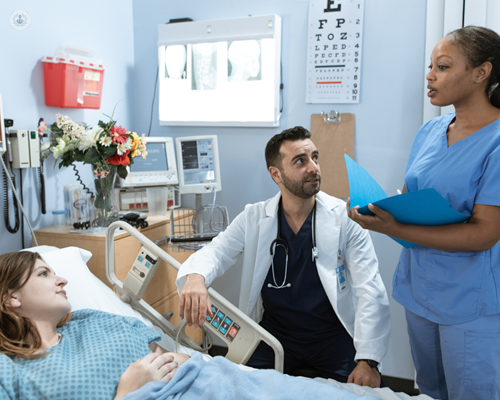
Patients are advised not to drive until it is comfortable wearing a seatbelt and can perform an emergency stop safely. Heavy lifting and sexual intercourse should be avoided too until scars are healed.
It is also important that patients are reminded of the fact that contraception is no longer required, however, barrier methods such as condoms still need to be used to be protected against sexually transmitted infections (STIs).
Is HRT offered after a hysterectomy?
It's possible you'll be offered hormone replacement therapy after a hysterectomy. While HRT replaces some of the hormones your ovaries used to produce and relives any menopausal symptoms you have, they won't exactly match the hormones previously produced by your ovaries.
Do organs shift and adjust after having a hysterectomy?
After the removal of the uterus, the remaining abdominal and pelvic organs do slightly shift to fill the space. This adjustment can cause incontinence and other issues after hysterectomy.
In order to prevent this, you can do pelvic floor muscles exercises like Kegels.
If you are preserving your ovaries, your doctor will explain how they will reattach the ovaries once they are separated from the uterus.
What's a laparoscopic hysterectomy?
Laparoscopic hysterectomy is one of the ways a hysterectomy can be performed.
It's the preferred way to remove the reproductive system's organs and surrounding tissues, and they are usually carried out under general anaesthetic. A small tube containing a laparoscope and video camera will be inserted through a small cut in your stomach. Instruments are then inserted through other small incisions in your abdomen or vagina in order to remove your womb, cervix or other parts of your reproductive system.

